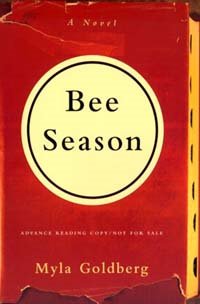
Like Charles Burns’ “Black Hole”, this was a totally spontaneous read. Next up was supposed to be “The Wind-up Bird Chronicle”, but Olman excitedly acquired Stephen King’s latest after being on the library waiting list for 3 weeks. With my inherent mistrust of mass fiction, I was skeptical at first. But Olman informed me of the story’s premise: on a certain day, a strange signal is broadcast. Anyone who uses their cell phone turns into a blathering, rage-filled lunatic who's only purpose is to kill every living thing in sight. In the blink of an eye, civilization is reduced to pure mayhem and soon afterwards, burning stinking rubble. We then follow a rag-tag bunch of survivors and see how they fare amidst the post-apocalyptic desolation and teeming “phone-crazies” who’ve now become zombie-like drones with a strange hive-like mentality…
I knew then I had to see what this post-apoca-zombie book had in store for me. Luckily, Olman has been so immersed in his bande dessinee serials that I was able to jump into “Cell” immediately after finishing “Bee Season”. I had my share of art-house literature, time for some serious kickass horror action!
And boy, “Cell” really delivers. Within a couple of pages, death, destruction and gore are already in full swing, boyee! King wears all the old and new horror movie influences on his sleeves: One Missed Call, Dawn of the Dead, 28 Days Later, Invasion of the Body Snatchers, War of the Worlds, and Land of the Dead. He doesn’t even wince with those post-9/11 references. But he gets away with it because he’s so damn good at what he does. Most importantly, he’s able to build characters that are ordinary, identifiable and compassionate folk who also possess reasoning, intelligence and a good dose of survival instincts. Although the characters are from a range of age, sex and background, my only beef is that they’re all caucasian. But I should’ve known better. King wields total authorial control and every element of his story is accounted when, towards the end of the novel, one of the protagonists remarks, upon witnessing a fair ground full of nearly all-white phone-zombies, that “this is New England after all”.
The novel’s packed full of everything and there was never a dull moment; a real page-turner that kept me up until 3am on Sunday night. There was a section where I didn’t like the way the zombies were going in their “developments”, just a bit too far-fetched for me. But I soon got into it and accepted it as a new twist in the zombie genre. Anyway, I don’t believe I need to say much more. Go and read it, it’s a lot of fun!
